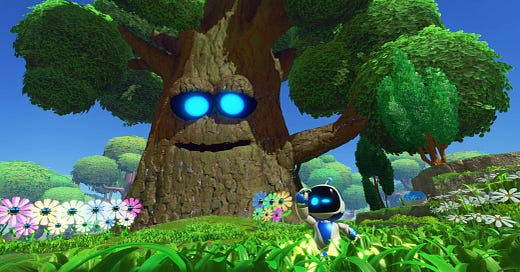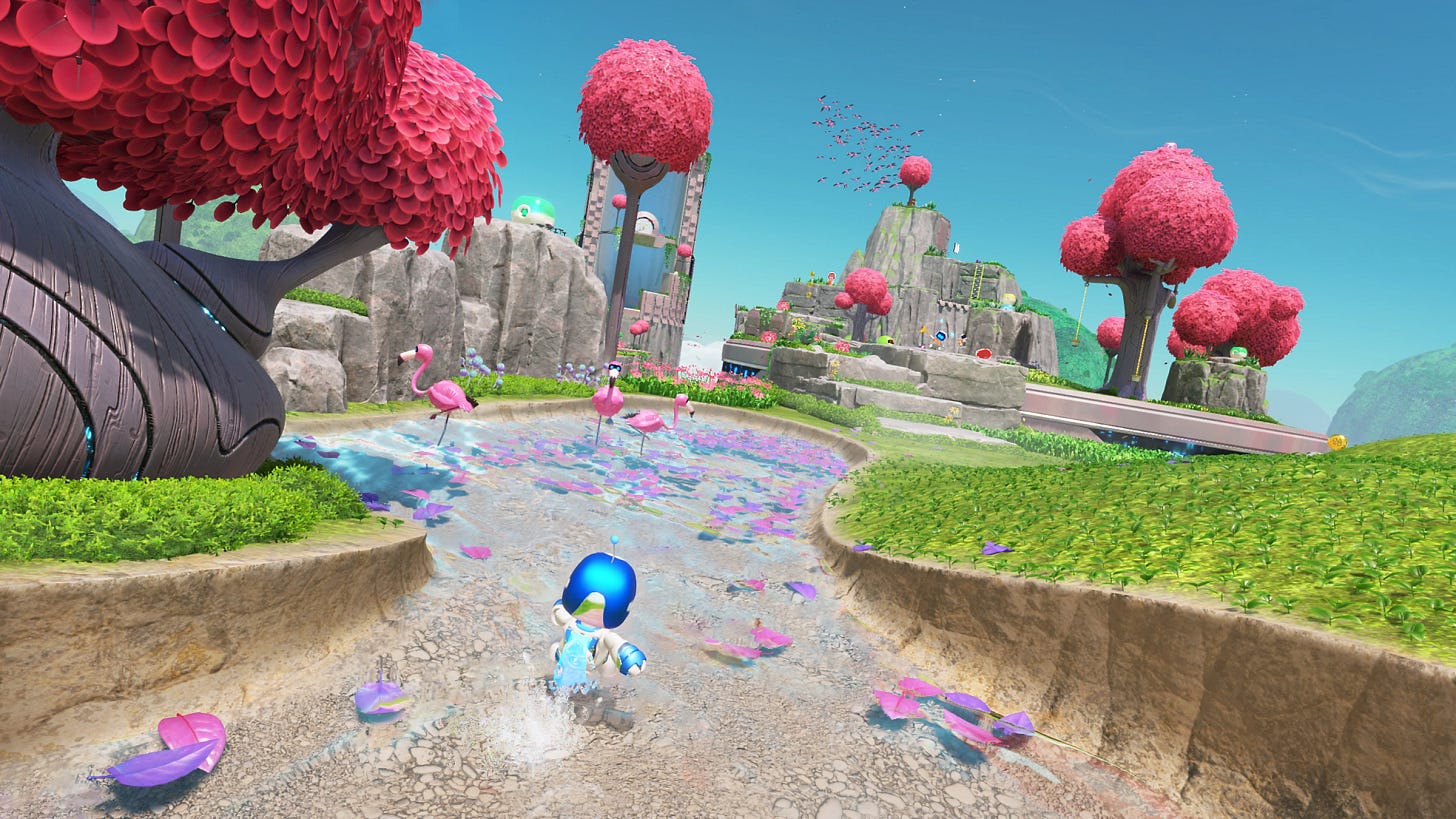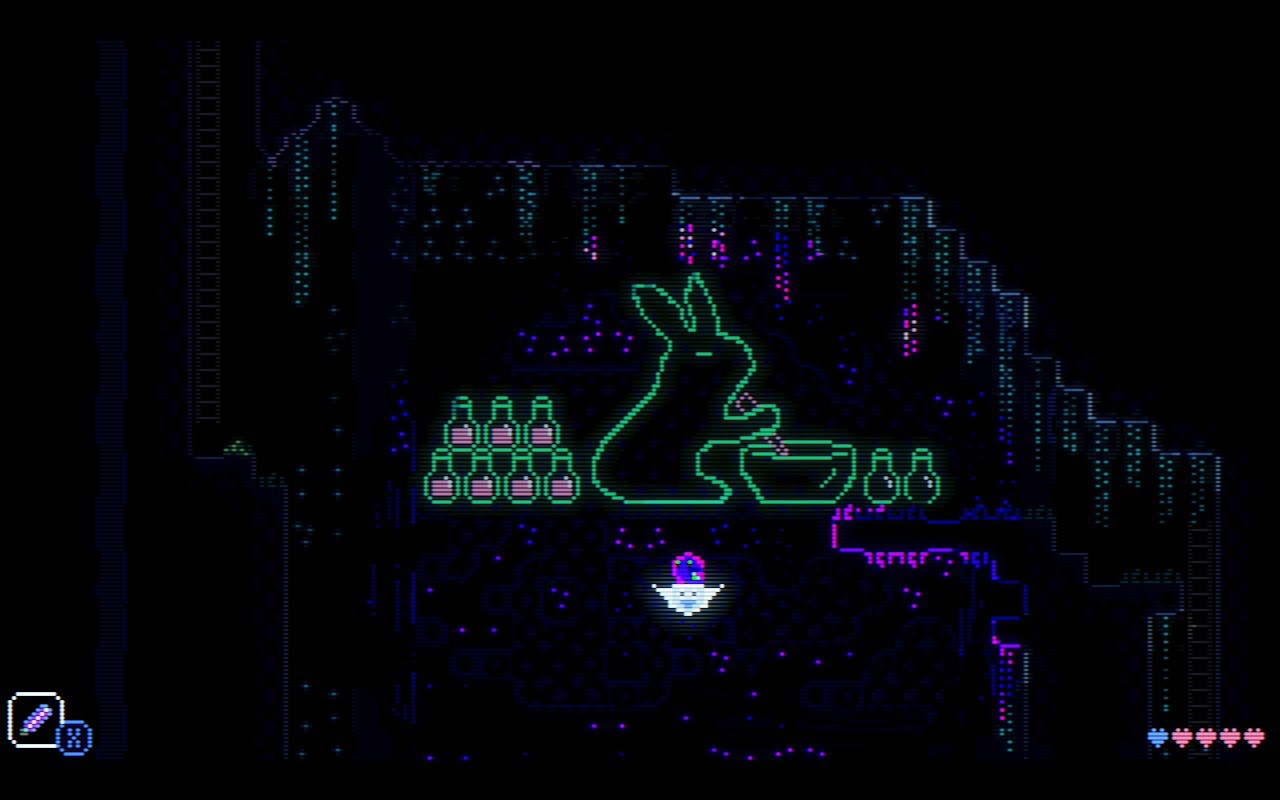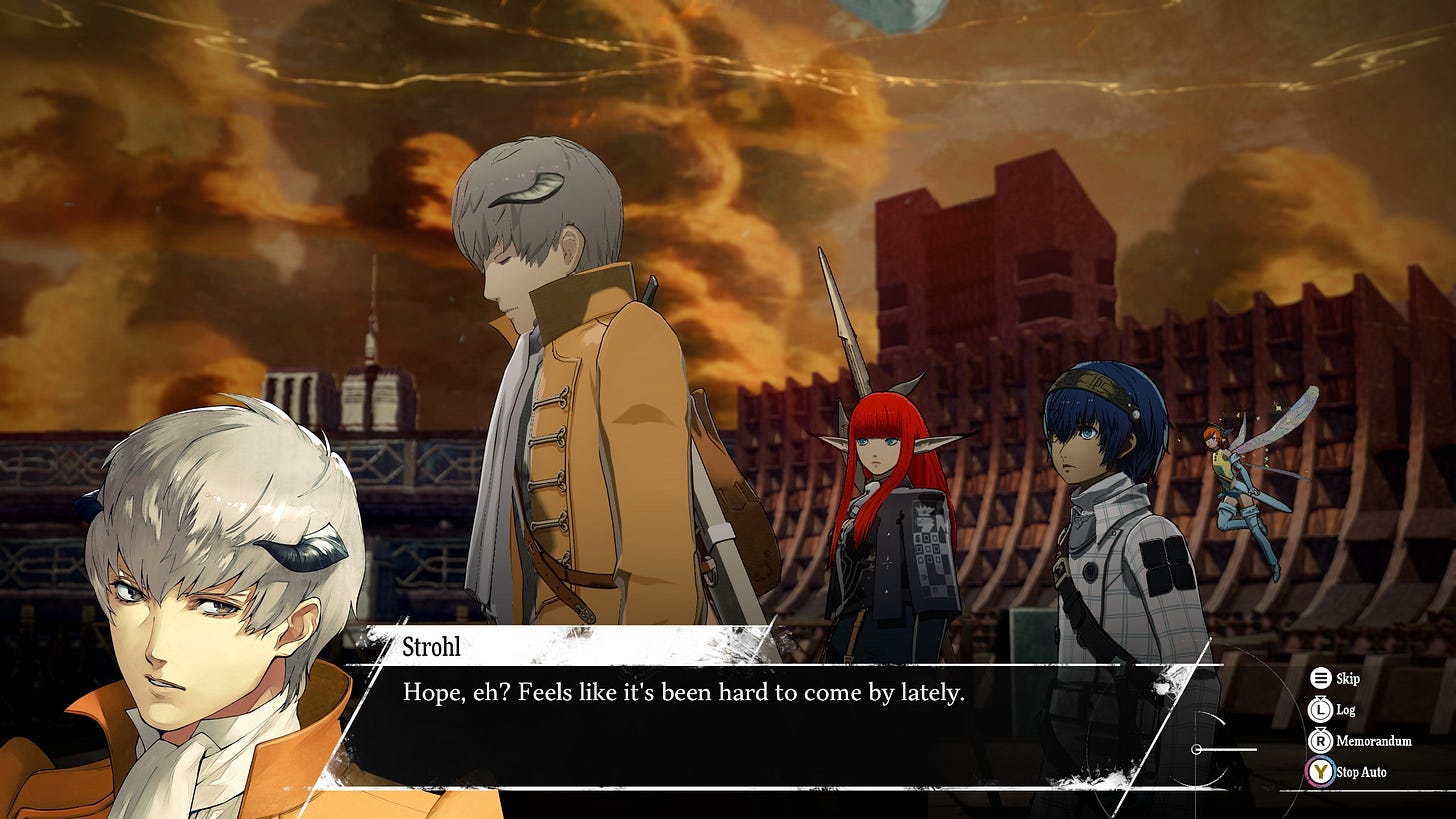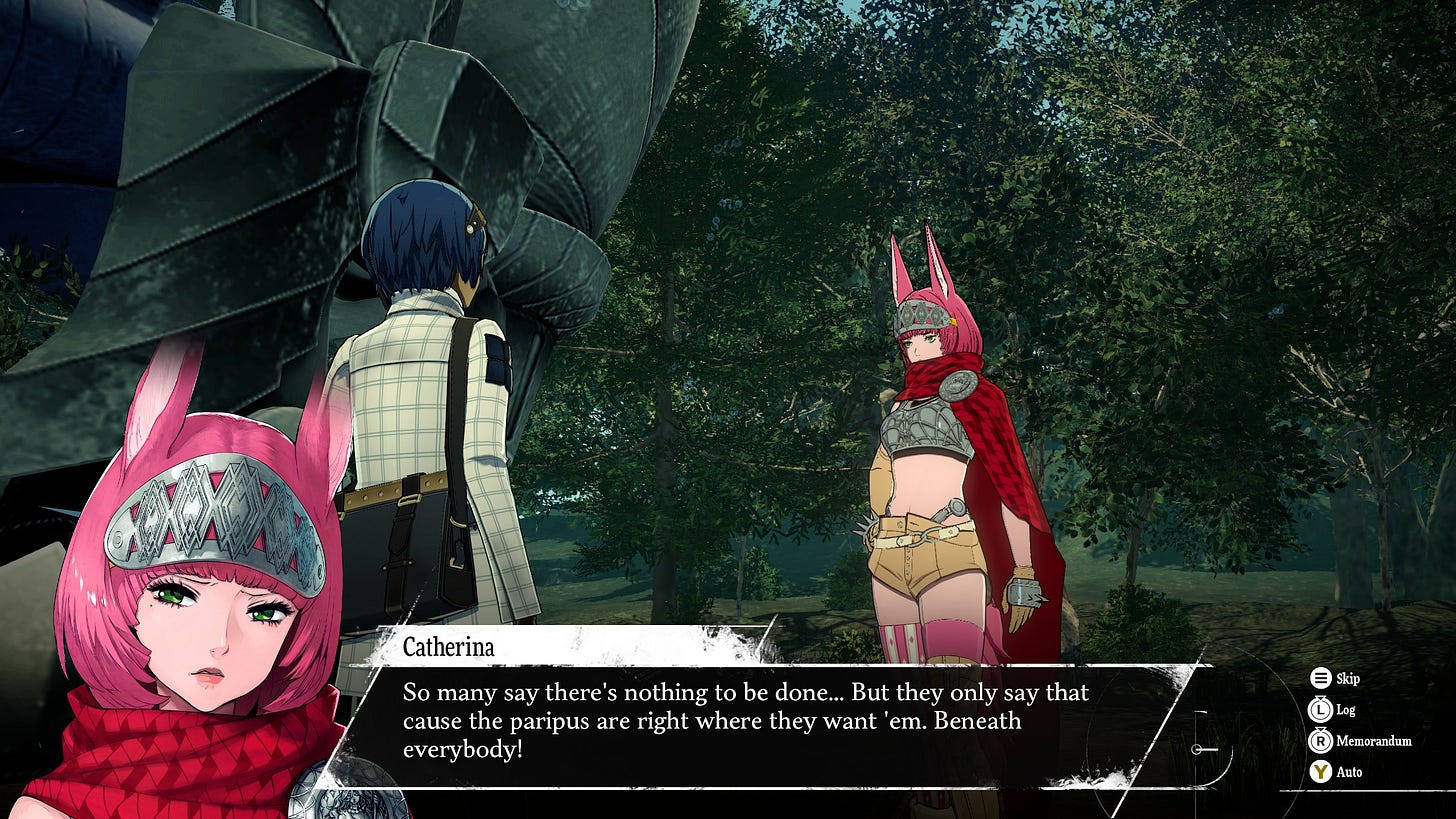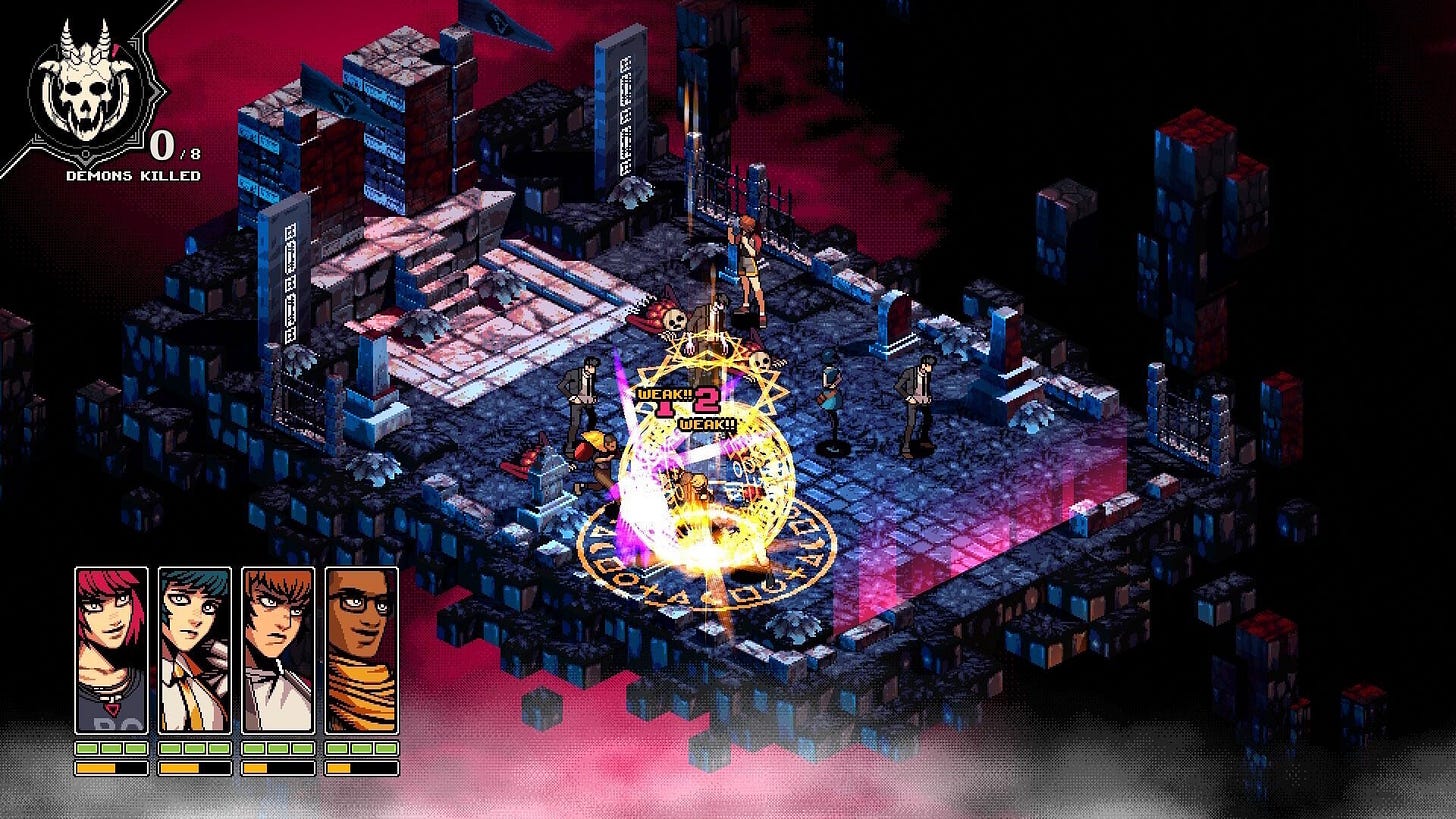The best video games of 2024 had an interesting running theme that frustrated my ego. Today, to ring in the end of the year, we’re gonna explore how that happened.
A game recommendation
Hell with it. This game got talked about at release and was featured in a big Nintendo Direct announcement, but I want more people to play it because I think it’s that cool.
Y’all need to play Live A Live if you haven’t already.
Live A Live is a very experimental RPG from 1994 that’s closer to a short story collection than it is to the usual long, sweeping, operatic narratives you see in other RPGs of the era. It features eight stories set across different time periods and genres, and by “genres” I don’t just mean in terms of narrative design.
Each chapter is structured differently and features different gameplay mechanics, to the point that I’d call them entirely different games. One is a conventional medieval fantasy. Another is a nearly combat-less horror game. Yet another is a stealth game with the option to play non-lethally. One of them is even a tokusatsu anime, complete with an opening cinematic and a theme song.
Live A Live is vibrantly fascinating, even today, and I hold so much respect for what it accomplished over thirty years ago.
The game was also an early turn for many people whose talent would become renowned in later years, including Takashi Tokita (Chrono Trigger) and Yoko Shimomura (Kingdom Hearts). It was also a stated influence on Toby Fox’s design sensibilities, to the point that Undertale might not exist in its current form if not for this game. It’s worth playing just to see that history in action.
While the original game was never released outside Japan, there is an excellent remake, complete with English localization, currently available on PlayStation, Switch, and Windows PC via Steam. It is Steam Deck verified.
The biggest and most important gaming trend of the year
Well, dear reader, we are nearing the end of 2024. For many, many reasons, it has been quite the year. I, for one, am very tired. Very, very, very, very tired.
To bring the focus specifically to games, there have been many trends that have been ascribed to 2024, but there’s been one that I feel a need to point out. It’s a personal one.
The overarching trend of 2024 in video games has been “SuperDQP eating crow.”
I don’t just mean that I pivoted away from YouTube, or that my New Year’s resolutions didn’t pan out. I mean that there have been several games this year that I initially looked at, scoffed, and then watched receive critical and commercial acclaim, often to then play and be overjoyed to find were worthy of the praise. Ow, my ego!
2024’s games often took my skepticism and snapped it in half over their knee, like Bane breaking Batman’s back.
Let’s look at a few case studies.
Sony dropped the first trailer for their award-winning platformer Astro Bot in May, and I didn’t think much of it. I had played the preceding Astro game, Astro’s Playroom – a free, short tech demo for the PlayStation 5 that showed off the controller’s capabilities while featuring plenty of cameos from PlayStation’s history – and thought that it was a neat idea, but not necessarily deserving of a full-priced, $60 sequel.
When the game launched later in September, I was pretty clearly proven wrong. It was getting glowing reviews and all of my friends were playing it, and when I bit the bullet and played it myself, I understood why. It’s a game bursting at the seams with joy and creativity that, as many reviewers accurately pointed out, rivals even Nintendo’s work with the Mario franchise. A friend described it as “Super Mario Galaxy 3: PlayStation Boogaloo,” which is an worthy descriptor.
I have mixed feelings on the game’s reliance on brand recognition, but at the same time, I can’t deny that the game made me literally squee at multiple points, so I’m gonna have to hand it to Team Asobi, they deserve the awards that they’ve won and are going to win in the immediate future. Can’t wait to see what they do next.
Next case study.
There’s a lot I can say about the YouTuber videogamedunkey, and not a lot of it positive – I think he’s had a net negative impact on video gaming discourse – so when he formed his own publishing label, I was skeptical. Its first published game, Animal Well, had a lot going against it in my mind leading up to its release in May.
Sure enough, like the above story with Astro Bot, it garnered a lot of very positive buzz at release, with a friend of mine falling deep into its secrets in a way that evoked memories of experiencing The Legend of Zelda: Breath of the Wild for the first time and exchanging clues and stories. Well, damn.
Exploring Animal Well was wonderful. It’s a game you can fall into as deeply as you want; you can play it as a basic metroidvania and call it quits after the credits roll, or you can dig deeper and find some of the more esoteric secrets, some of which can only be found through mass community collaboration.
It runs deep if you want it to, and I love when a game is willing to trust its players to work together to uncover its deepest meanings. Experiencing Animal Well was magical in a way that many metroidvanias aren’t.
Let’s look at one last case study before I wrap up and make my point.
I was not looking forward to Metaphor: ReFantazio before release.
I enjoyed my time with director Katsura Hashino’s Persona series, but I largely enjoyed it before realizing I was queer and subsequently coming out as non-binary and on the asexual spectrum, and that hindsight has not been kind to Hashino’s work. A lot of Hashino’s thoughts on gender and relationships are easily reflected in the games, which, while longing for radical change and justice, are still fixated on heteronormativity.
(As a gender-non-conforming person, the Catherine games’ depiction of transgender characters did not inspire confidence in Hashino’s future work.)
Hashino’s new team at Studio Zero has thankfully evaded this conundrum in Metaphor by sidestepping player sexuality and romance nearly altogether, which has ruffled a lot of feathers among Persona fans, but I’m largely okay with this.
I’m normally all for games exploring player sexuality and being more sex-positive and gender-inclusive (Baldur’s Gate 3 and Dragon Age: The Veilguard have been shining bastions of this in the last couple years), but you know what, maybe it’s okay that Katsura “female protagonists aren’t worth the effort” Hashino isn’t writing romance anymore.
Which is great, because Metaphor’s writing team has definitely done their homework on how racism and social injustice happens, and presents one of the few instances of fantasy racism that feels well-thought out, consequential, and not just present to make the world feel superficially edgier or more realistic. The game’s writing on systemic discrimination and abuse feels more rich now that there’s not casual, accepted homophobia or transphobia haunting around the background.
Good job, Studio Zero. Have a sticker. But you only get that sticker by sidestepping the issue and not addressing it directly. And that leads me to the point I wanted to get to.
These three games have been very pleasant surprises. I’m genuinely glad to have played them. I’m happy that these games broke through my skepticism and earned some much-needed kudos. But I do still believe that skepticism is warranted.
I will have my eyes on Hashino’s next game, but not because I know I’ll like it; rather, with the trepidation that his new studio still may be held back by his views on gender and sexuality; a bullet that Metaphor miraculously dodged without confronting directly.
2025 will yield many games that I anticipate eagerly; Metroid Prime 4: Beyond and Doom: The Dark Ages being chief among them. But even with these, it’s important to hold a healthy amount of skepticism. There are plenty of ways Metroid Prime 4 could falter, and it’s vitally important to keep that in mind not just for that game, but for every game.
And you never know! Maybe that insane Shadow Labyrinth game will turn out to be really good. But I’ll believe it when I see it.
(Also, you know this, but stop pre-ordering video games. That Steam page will still be up after reviews and performance videos roll in.)
One last wishlist recommendation going into 2025
On the note of games borrowing liberally from Persona, one of my most anticipated games of 2025 is actually arriving quite soon: it’s the giallo-tinged retro horror RPG Demonschool.
The game is a lo-fi feast for the eyes, nailing the PlayStation 1-era anime aesthetic with an appealing teenage punk edge. Visually, it evokes the first three Persona games on the PS1; games that often go underlooked compared to their (equally gorgeous but very different) younger siblings on the PlayStations 2 through 4.
The combat is deliciously crunchy and can be punishing, but for me, that’s part of the appeal.
This game has style for days and I cannot wait to see what the full game has in store.
Demonschool will release in early 2025 on PlayStation, Xbox, Switch, and Windows PC via Steam and Epic Games Store. A demo is currently available to download on Steam.


